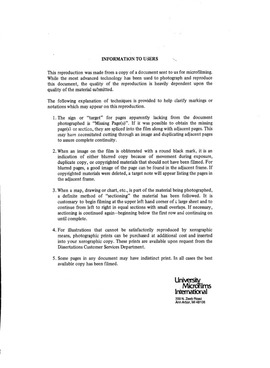| dc.contributor.author | Serpkenci, Ray Resit, | en_US |
| dc.date.accessioned | 2013-08-16T12:29:17Z | |
| dc.date.available | 2013-08-16T12:29:17Z | |
| dc.date.issued | 1984 | en_US |
| dc.identifier.uri | https://hdl.handle.net/11244/5294 | |
| dc.description.abstract | This study proceeds from the general assumption that the performance of a retail store can be explained, substantially, by the actions, behavior or patterns of conduct that a unit follows in adopting and adjusting to its market. Hence, performance is posited to be a complex function of unit behavior, which in turn is a function of market conditions. Eleven nonobservational research hypotheses, each containing several subhypotheses are empirically tested in a retail setting. | en_US |
| dc.description.abstract | With the growing importance of the service economy and the much publicized state of lagging productivity gains in this sector, the area of retailing performance has been one of special interest to a number of marketing scholars. However, despite the vast amount of research generated, our knowledge of the conditions that produce the levels of performance in retailing remains scarce. | en_US |
| dc.description.abstract | The results of the empirical analyses indicated that market demand conditions (e.g., quality and potential demand) have a primary influence on retail market structure (e.g., overstoring and competitive intensity). The research findings also indicate that the "direct" relationships between market conditions and various elements of unit behavior (e.g., managerial and marketing effectiveness) are not as strong as they were initially expected. However, both the conditions of market demand and supply, as well as the elements of unit behavior, are found to have important direct and indirect effects on retail store performance. | en_US |
| dc.description.abstract | Previous investigations of retail store performance have been "soft" on adequate theoretical conceptualizations, and overly simplistic in both measurement and statistical analyses. In this study, a holistic construal is used to develop and empirically test a model for the explanation of retail store performance. | en_US |
| dc.format.extent | xvii, 435, [24] leaves : | en_US |
| dc.subject | Business Administration, Marketing. | en_US |
| dc.title | An investigation into the determinants of retail store performance / | en_US |
| dc.type | Thesis | en_US |
| dc.thesis.degree | Ph.D. | en_US |
| dc.thesis.degreeDiscipline | Michael F. Price College of Business | en_US |
| dc.note | Source: Dissertation Abstracts International, Volume: 45-08, Section: A, page: 2592. | en_US |
| ou.identifier | (UMI)AAI8425547 | en_US |
| ou.group | Michael F. Price College of Business | |
